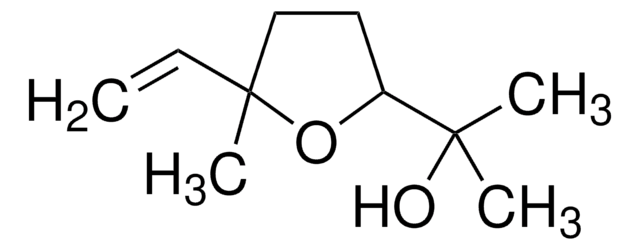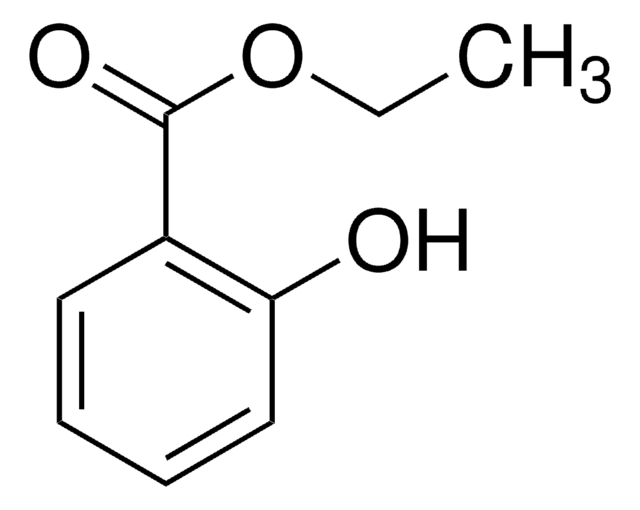W374600
Linalool oxide
natural, ≥95%
Synonym(s):
2-(5-Methyl-5-vinyltetrahydro-1-furyl)-2-propanol
About This Item
Halal
Kosher
natural
Recommended Products
grade
Fragrance grade
Halal
Kosher
natural
Quality Level
Agency
follows IFRA guidelines
reg. compliance
EU Regulation 1223/2009
Assay
≥95%
greener alternative product characteristics
Less Hazardous Chemical Syntheses
Use of Renewable Feedstocks
Learn more about the Principles of Green Chemistry.
sustainability
Greener Alternative Product
refractive index
n20/D 1.452
density
0.945 g/mL at 20 °C (lit.)
application(s)
flavors and fragrances
Documentation
see Safety & Documentation for available documents
food allergen
no known allergens
fragrance allergen
no known allergens
greener alternative category
Organoleptic
citrus; cooling; floral
SMILES string
CC(C)(O)C1CCC(C)(O1)C=C
InChI
1S/C10H18O2/c1-5-10(4)7-6-8(12-10)9(2,3)11/h5,8,11H,1,6-7H2,2-4H3
InChI key
BRHDDEIRQPDPMG-UHFFFAOYSA-N
Looking for similar products? Visit Product Comparison Guide
General description
Disclaimer
Signal Word
Danger
Hazard Statements
Precautionary Statements
Hazard Classifications
Acute Tox. 4 Oral - Skin Corr. 1B
Storage Class Code
8A - Combustible corrosive hazardous materials
WGK
WGK 2
Flash Point(F)
163.4 °F - closed cup
Flash Point(C)
73 °C - closed cup
Choose from one of the most recent versions:
Already Own This Product?
Find documentation for the products that you have recently purchased in the Document Library.
Articles
Recent regulatory changes in the US and EU have put the focus on fragrance safety and ingredient transparency, including the MoCRA, to be implemented within the next two years. Manufacturers and suppliers must comply with these changes to ensure they are meeting consumer demand and industry expectations for safety.
Our team of scientists has experience in all areas of research including Life Science, Material Science, Chemical Synthesis, Chromatography, Analytical and many others.
Contact Technical Service










